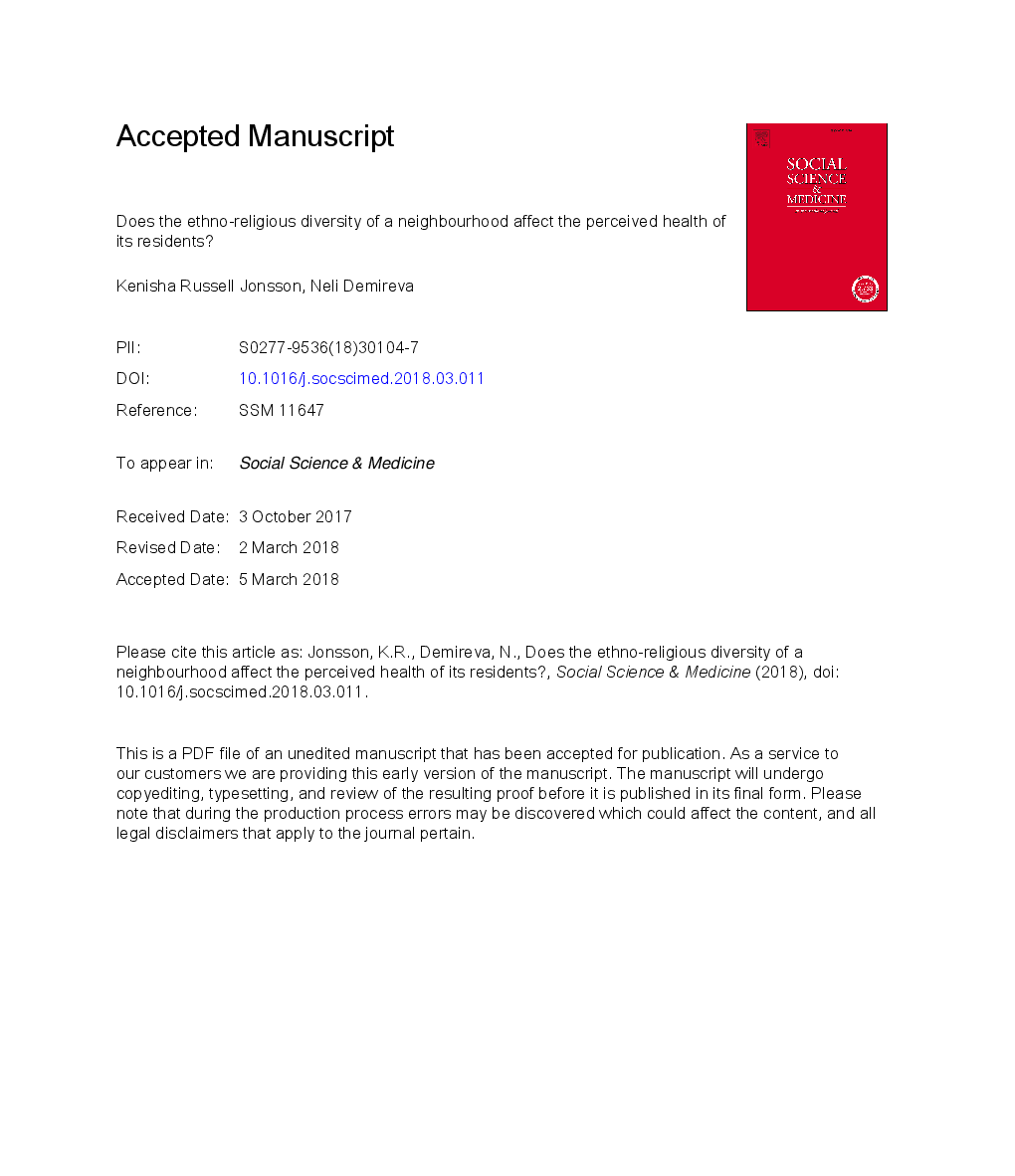ترجمه فارسی عنوان مقاله
آیا تنوع قومی و مذهبی یک محله بر سلامت درک شده ساکنان آن تاثیر می گذارد؟
عنوان انگلیسی
Does the ethno-religious diversity of a neighbourhood affect the perceived health of its residents?
| کد مقاله | سال انتشار | تعداد صفحات مقاله انگلیسی |
|---|---|---|
| 131439 | 2018 | 34 صفحه PDF |
منبع

Publisher : Elsevier - Science Direct (الزویر - ساینس دایرکت)
Journal : Social Science & Medicine, Volume 204, May 2018, Pages 108-116
ترجمه کلمات کلیدی
قومیت، سلامت خود ارزیابی، سرمایه اجتماعی، تنوع محله فرضیه تعارض، فرضیه تماس بگیرید، تبعیض انگلستان،
کلمات کلیدی انگلیسی
Ethnicity; Self-rated health; Social capital; Diversity; Neighbourhood; Conflict hypothesis; Contact hypothesis; Discrimination; England;

